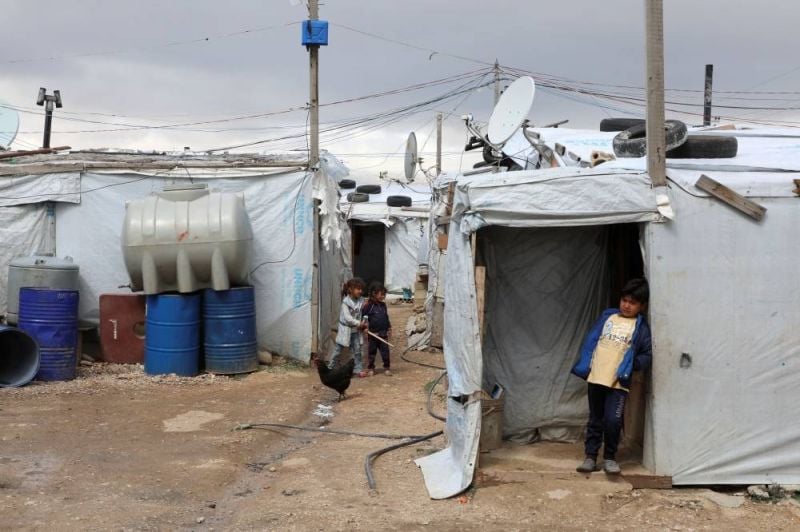
A young Syrian refugee stands in front of a tent at an informal tented settlement in the Bekaa Valley. (Credit: Mohamed Azakir/Reuters)
Want to get the Morning Brief by email? Click here to sign up.
Human Rights Watch alleged that demonstrators arrested during January’s protests in Tripoli were abused and tortured during interrogations by military intelligence officers. In a report published Tuesday, the rights group said detained protesters interviewed by its researchers had reported being beaten, slapped and kicked, and one was allegedly threatened with being hung from the ceiling by his wrists. HRW said detainees’ rights had also been violated because many of them were held incommunicado and interrogated without a lawyer present. At least 35 people, including two minors, were charged with terrorism last month in connection with sometimes violent demonstrations held in Tripoli in January against a strict COVID-19 lockdown imposed without social assistance measures. This is the second claim of torture allegations against Lebanese authorities this month; an Amnesty International report last week accused authorities of torturing more than 20 Syrian detainees.
Parliamentary committees took a step toward setting up a regulatory body to oversee Lebanon’s pharmaceutical industry. The entity would be part of the Health Ministry and would function similarly to the United States’ Food and Drug Administration, health committee member Fadi Alame told L'Orient Today. The body would be responsible for regulating imports and the prices of medication, medical supplies and health supplements, and the country’s long-inactive central laboratory would be reactivated to test the products, Alame said. The bill also aims to promote local manufacturing and the use of generic drugs rather than expensive brand-name medications when possible, he added. The draft law has been approved by the health and administration and justice committees and should next head to the full Parliament for a vote.
Speaking during an international conference convened to raise funding for the Syrian crisis response, Lebanon’s caretaker premier called for the international community to support the country’s proposed plan for the return of refugees to Syria. The fifth annual Brussels Conference was convened remotely by the United Nations and European Union on Monday and Tuesday and raised 5.3 billion euros (about $6.2 billion dollars) in pledged contributions to provide humanitarian aid inside Syria and in neighboring countries hosting refugees — a decrease of 1.6 billion euros from last year. About 865,500 Syrian refugees are currently registered with the UN refugee agency in Lebanon; hundreds of thousands more unregistered refugees potentially reside in the country. Hassan Diab told donor countries on Tuesday that Lebanon would not allow the refugees to settle permanently and called for the international community to support a voluntary return program without waiting for a political solution to the Syrian conflict. Deputy Prime Minister Zeina Akar also called for the international community to support poor Lebanese and to give more aid to the struggling education sector.
The distribution of COVID-19 vaccines through the private sector kicked off with national carrier Middle East Airlines launching inoculation of its employees. The campaign got underway with much fanfare, with caretaker Public Works Minister Michel Najjar receiving the first jab. Local pharmaceutical company Pharmaline plans to import 1 million Russian-made Sputnik V COVID-19 vaccine doses, which it is selling to companies and organizations wanting to offer the vaccine to their employees. The public distribution of the Pfizer and AstraZeneca vaccines has so far been slow. As of Tuesday, the Health Ministry reported that 139,623 people had received their first shot and 77,249 had gotten a second shot.
Iraqi Health Minister Hassan Tamimi is set to arrive in Lebanon today to discuss a deal to trade Iraqi fuel for Lebanese medical services and equipment. The agreement’s framework was approved by Parliament earlier this week — though much remains unclear as the government is unable to meet its own residents’ health-related demands. Also today, Hezbollah leader Hassan Nasrallah is set to speak at a memorial gathering for the late Sheikh Ahmad al-Zein, head of Lebanon’s Association of Muslim Scholars.